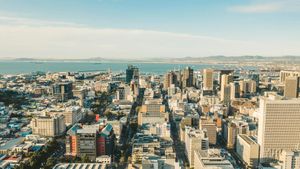On November 24, 2024, the Israeli government made headlines by announcing sanctions against the major left-leaning newspaper, Haaretz, thereby deepening the already contentious relationship between Prime Minister Benjamin Netanyahu's administration and the media. This decision followed comments made by Amos Schocken, the publisher of Haaretz, who referred to Palestinian militants as 'freedom fighters', igniting strong reactions from the government.
With apparent disdain for the newspaper's provocative stance, Communications Minister Shlomo Karhi was pivotal in promoting the resolution. The cabinet unanimously approved his proposal, which prohibits any government-related bodies from engaging with Haaretz or advertising within its pages. This move has been met with criticism, with Haaretz claiming it is part of Netanyahu's broader attempt to undermine democracy within Israel.
Haaretz, known for its investigative journalism and critiques of government policies, has increasingly found itself at odds with the current coalition, which is regarded as the most right-wing government in the nation's history. Following Schocken's remarks during a conference, where he condemned the Israeli government's approach to the treatment of Palestinians, the backlash was swift. The government claimed such rhetoric undermined Israel's legitimacy and right to self-defense.
Schocken's comments asserting the existence of ‘an apartheid regime’ have been at the crux of this conflict. He stated, "The Netanyahu government doesn’t care about imposing a cruel apartheid regime on the Palestinian population. It dismisses the costs of both sides for defending the settlements." His words appeared to rally support from some quarters but drew harsh rebukes from government officials who were already on high alert about perceived disloyalty from public figures.
The resolution, presented with little notice and no prior legal review, aimed to silence dissenting voices within the media. Haaretz rebuffed the proposed boycott, with editors and staff insisting they would not bow to government pressures nor transform editorial policies to align with governmental expectations. The newspaper issued statements accusing Netanyahu of seeking to establish authoritarian control over independent media, likening his tactics to those used by leaders like Russian President Vladimir Putin and Turkish President Recep Tayyip Erdoğan, who have notoriously suppressed free press.
Legal experts expressed concern over the legality of the sanctions. The attorney general's office reportedly had no prior knowledge of the proposal, raising alarms among legal professionals about the potential for government overreach. This action influenced the International Federation of Journalists to voice disapproval, asserting it undermines press freedom and could have far-reaching consequences for the Israeli information ecosystem.
The backdrop of this media sanctioning is equally significant, as the Israeli-Palestinian conflict has reached new levels of tension. The recent conflict has seen many journalists, including those from Al Jazeera, threatened or even killed during their reporting assignments. This escalation embodies the risks faced by journalists attempting to cover the realities of war, making media suppression even more controversial.
Further complicity arose when Communications Minister Karhi had previously sought to shut down Haaretz’s subscription base among state employees, indicating just how serious the government is about compromising the newspaper's financial standing. His earlier caution outlined "defeatist and false propaganda during wartime as justification for limiting federal funding to the paper.”
The sanctions couldn’t be viewed separately from the broader clampdown on media. Israeli authorities had also forcibly closed the offices of Al Jazeera following similar accusations, marking what many observers labeled as ‘dark days for journalism’. This increasing intolerance for criticism raises concerns about the future of democratic expressions of dissent and the role of international observers as watchdogs.
Among the criticisms of the sanctions was the fear of erosion of public discourse. Analysts predicted the chilling effect on free speech and public engagement with contentious topics like the Israeli-Palestinian conflict. The narrative surrounding this issue is fraught with passion on all sides, but the exclusivity with which the government appears to engage some narratives fosters concern about diversity of thought.
Haaretz, which has historically held the government accountable through its reporting, now faces considerable challenges from within its own political sphere. It remains caught between the imperative to report critically on state actions and the government’s efforts to cut off resources and public support. The government’s decision to halt all advertisements and state engagements signals to media outlets across the country just how serious the administration is about controlling narratives.
Yet, as many commentators have observed, efforts to silence dissent often lead to contrary outcomes. These censorship measures might galvanize existing supporters of Haaretz, fostering greater public interest and support for independent journalism. The pushback from the public is already evident, as many citizens and international observers are rallying behind Haaretz’s right to voice its opinions freely.
To conclude, this complex episode is indicative of not only the strained relationship between the Israeli government and the press but also the continued fight for freedom of expression and democracy within Israel. The actions taken against Haaretz could resonate beyond the immediate consequences, prompting broader discussions about civil liberties, government accountability, and the imperative for transparent journalism amid conflict.



